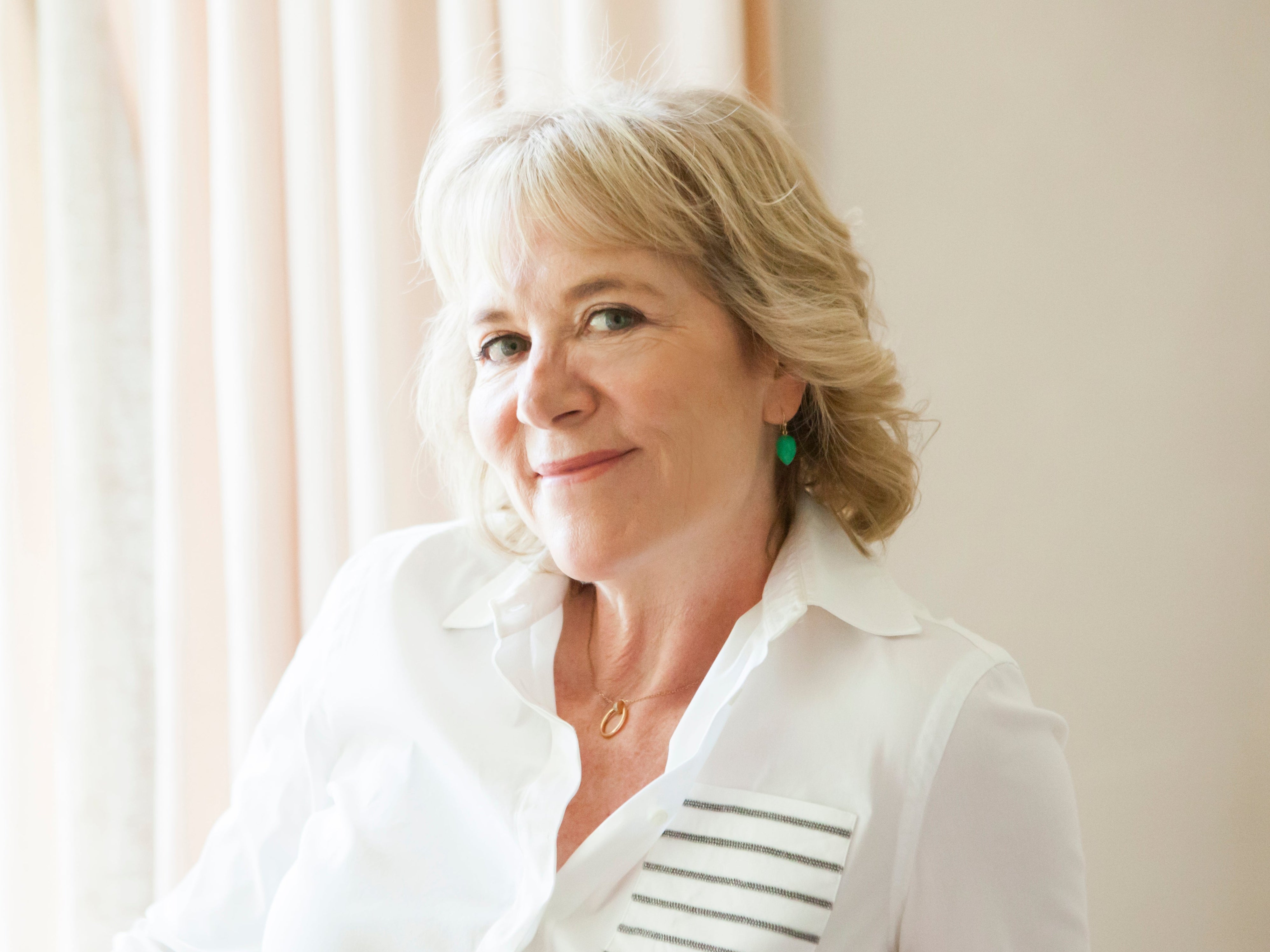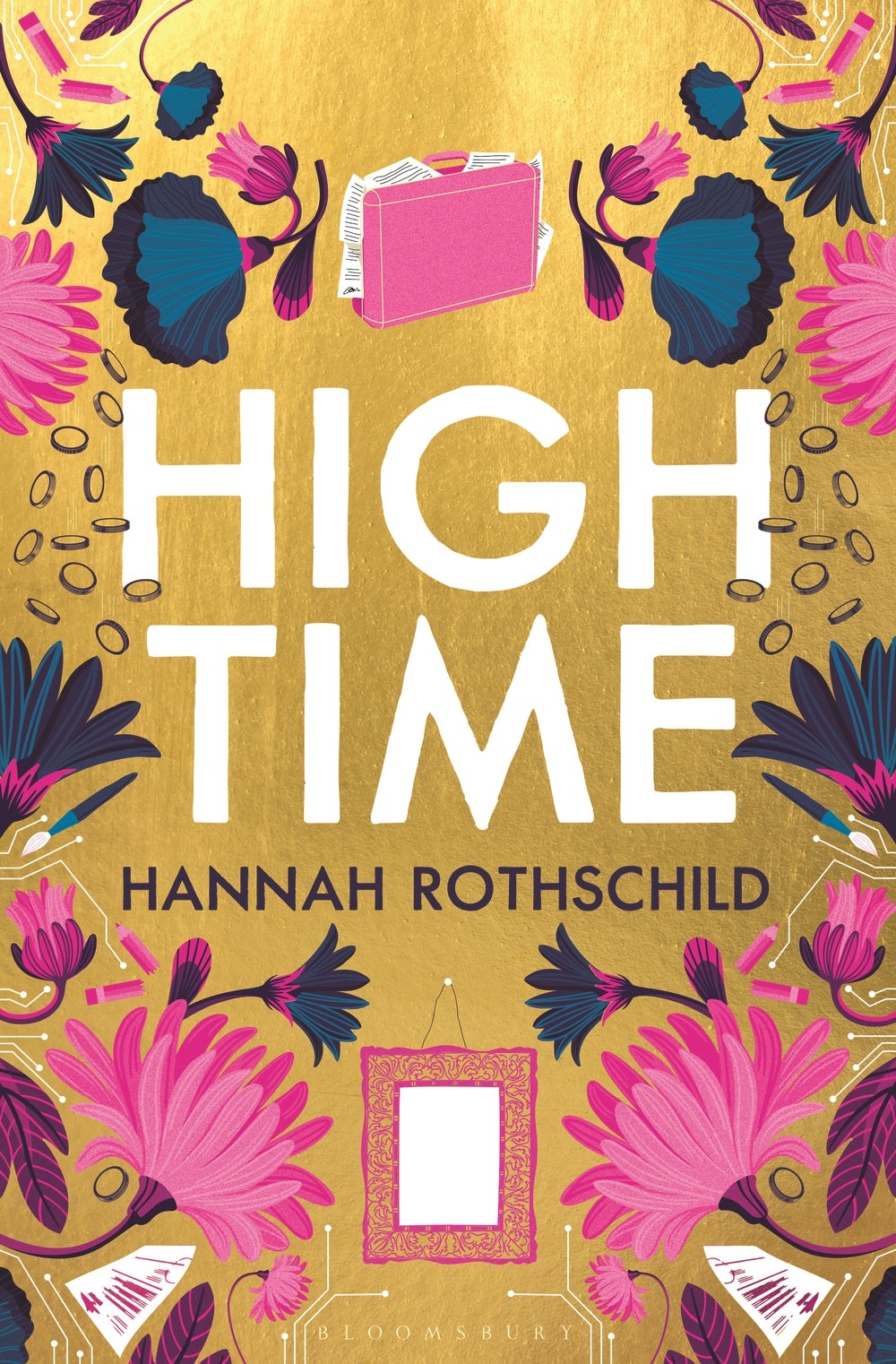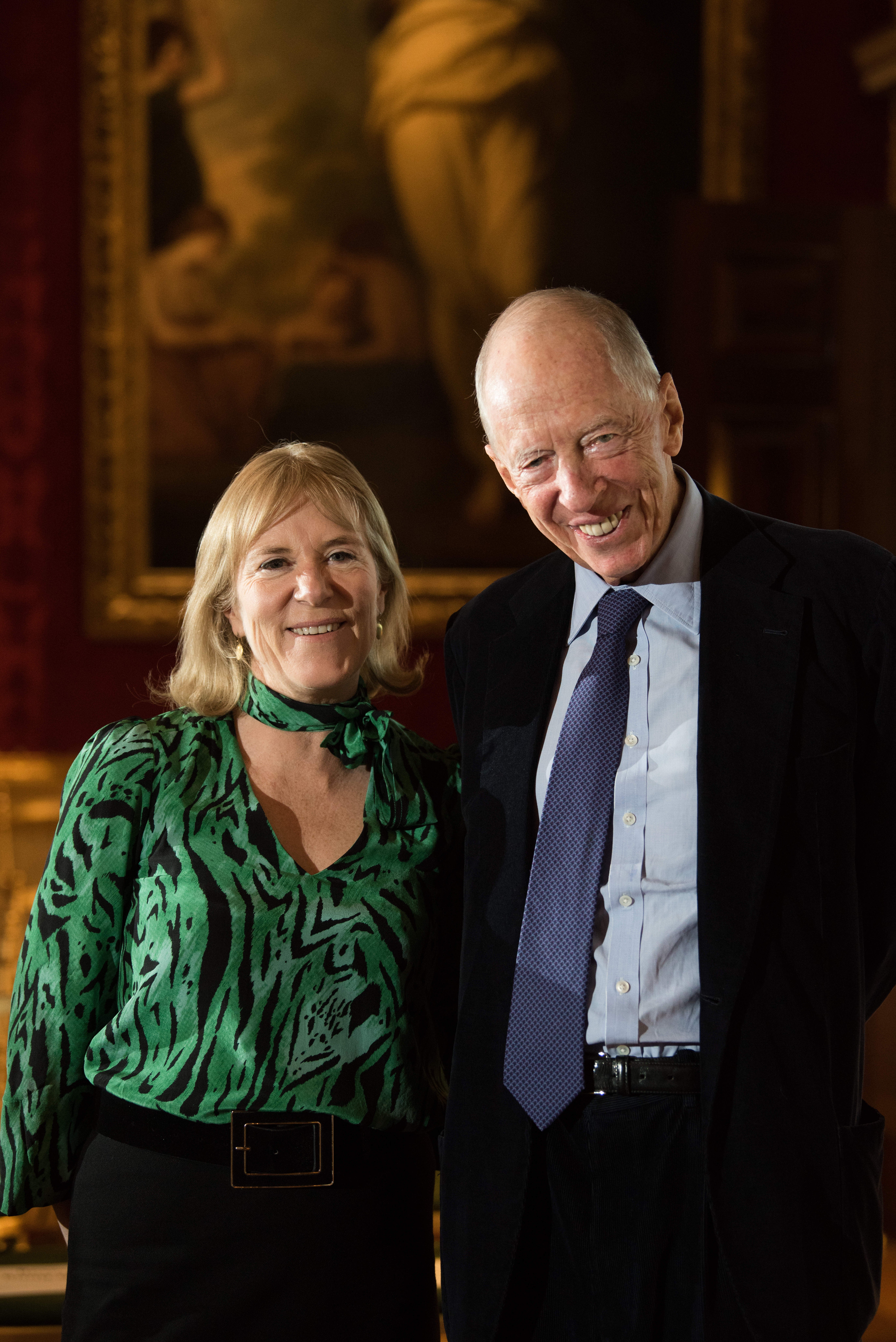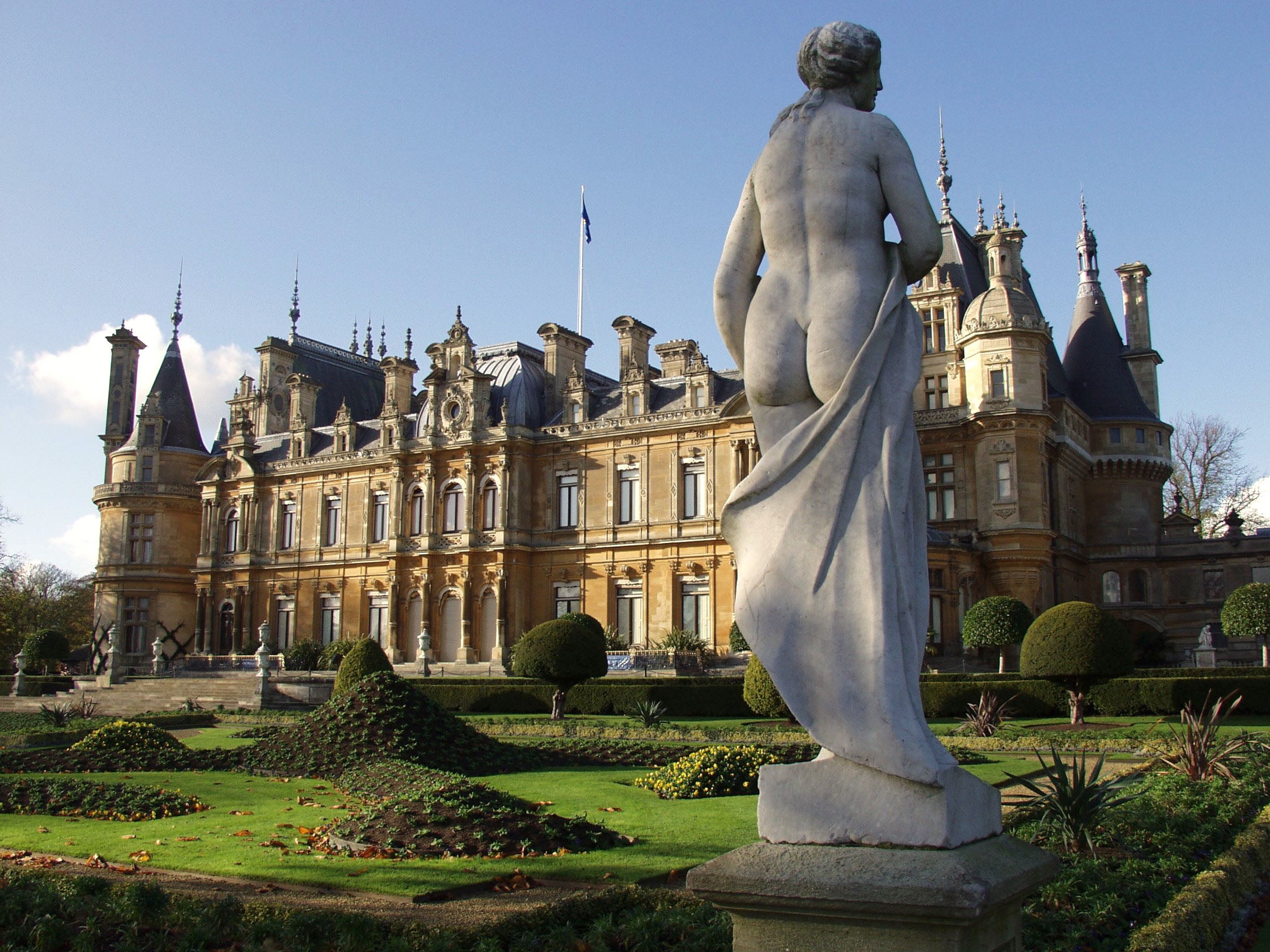‘Private jets? What a frightful waste of money!’ Hannah Rothschild on Succession and satirising high society
The Rothschilds have the wealth, power and prestige of Succession’s Roy dynasty but that’s where the similarity ends, insists heiress and novelist Hannah. As her family get the lavish Downton-esque period drama treatment, she talks to Charlotte Cripps about her extraordinary life and how it’s shaped her waspishly comic books


The Rothschilds: are they Britain’s answer to the Roys? “No!” laughs Hannah Rothschild, author, heiress and avid watcher of Succession. “We’re not like Succession.”
In 2008, The Telegraph wrote that “the Rothschild name has become synonymous with money and power to a degree that no other family has quite matched”, and, until a century ago, the Rothschilds, the most famous of all European banking dynasties, were the richest family in the world (the title currently goes to the Walton family who founded Walmart). But whereas the Roys, the dysfunctional American global-media family in the HBO/Sky drama, use “PJs” (private jets) like buses, Rothschild insists her family aren’t so flashy.
“We genuinely don’t live like that,” says Rothschild. Her father, investment banker Jacob Rothschild, is “very parsimonious”. “He’d be horrified flying around the world in a private jet. He’d think it’s a frightful waste of money.” With a knowing look, she adds, “But I think we can all relate to difficult family dysfunction, can’t we?”
The comparison might be inexact, but the family – renowned for their philanthropy, art collection and staggeringly grand properties – will soon be the subject of a prestige television series. The family’s origin story is to be turned into a sumptuous period drama developed by Downton Abbey’s Julian Fellowes and producer Jemima Khan. But Rothschild, who has her own take on her family heritage and bucket loads of material about wealth and status, tells stories of her own – with her latest book, High Time, published this week.
The eldest child of Jacob, the 4th Baron Rothschild, and the late racehorse owner Serena Dunn, Hannah, 61, has published four books, with her style compared to Evelyn Waugh and Nancy Mitford. Her 2016 debut, The Improbability of Love, a romantic comedy about the high-society art world, won the Wodehouse prize for comic fiction and was shortlisted for the Baileys Prize for Fiction. Her brilliant new novel, High Time, is pure escapist satire. Once again set in the world of high art as well as high finance – both of which she lampoons with comic aplomb – the book reads like a thrilling fairground ride version of Downton Abbey.
Much of her material has to do with her family, whose former family pile Waddesdon Manor, a fairy-tale French chateau in Buckinghamshire, is now owned by the National Trust. (The property is still managed by the Rothschild Foundation, which as a trustee she oversees with her father, 87, who lives nearby at the sprawling Eythrope Park.) She was the first woman to chair the National Gallery in London and is the first ever female Rothschild to work for the family bank, and the pages of her books are seeping with her own experiences: a world of oligarchs and billionaires, "dressed up like peacocks" at glamourous art world events such as Frieze – places that she calls “zoos”.
“To an extent you have to write about the world that you know about... or I’d be cancelled,” she tells me half-seriously. She’s talking to me from her immaculate office in London’s St James’s, Mayfair, dressed business-smart in a striped shirt, blue blazer and white trousers.
When she’s not writing, Rothschild sits on the board of her father’s private investment trust RIT over the road at Spencer House, as well as the flagship French bank Rothschild & Co, which is in the process of going private. She also took over from her father Jacob as chair of Yad Hanadiv in 2018 – a charity dedicated to creating resources for advancing Israel. No wonder, then, that she treats writing novels “like a love affair”: it’s the one area where she’s stepped out of her family’s huge shadow and carved out a path of her own.
“It’s slightly the thing I’m not supposed to be doing a lot of the time,” says Rothschild. “I will take my computer to a coffee shop. Sometimes I’ll take it to a hotel, or sometimes I will sneak off for a day or two. I really try and keep it in that kind of milieu.”
While the cash-strapped Cornish aristocratic Trelawney family were struggling with the financial crash of 2008 in Rothschild’s House of Trelawney (2020), they make a comeback in High Time, facing fresh challenges in the run up to the Brexit referendum of 2016. The new book revolves around the beautiful Ayesha, the illegitimate daughter of Anastasia, who, in House of Trelawney, vanished from England to marry an Indian maharaja 20 years ago and left her only daughter in the care of the family. Now estranged from the Trelawneys, Ayesha has married the stratospherically rich financier and insecure brute Sir Thomlinson Sleet – not for love, but for security.
Ayesha is rich but lonely, leading a hollow existence with Sleet at her family’s former 800-year-old crumbling Cornish castle, which he has bought for her as a wedding present. She is, writes Rothschild, a “prematurely middle-aged woman trapped in the migratory pattern of the super-rich, moving from event to party, lunch to dinner, cruising in private jets, and planes from the South of France to the Caribbean to the Alps.”
Meanwhile, Sleet becomes obsessed by a cryptocurrency billionaire in a bikini – and ruthlessly discards Ayesha like a piece of rubbish. He starts selling stories to the wryly titled Daily Tittle Tattle in a campaign to tarnish his wife’s name in a bid to divorce her. It may seem a big ask for the reader to feel sorry for the hugely privileged heroine, but by the time Sleet is trying to get custody of their five-year-old daughter Stella – who he’d previously taken no interest in – you’re gunning for Ayesha.

Soon, Sleet is trying to pull the rug from under Ayesha’s secure, affluent life. Worst of all, Ayesha discovers that her marriage was a sham – even her engagement ring is fake and isn’t a diamond “the size of a plover’s egg” but a “pretty piece of glass”. Fearful that she will become penniless, she is determined to fight for herself and her daughter. Her plan involves infiltrating the world of high finance, outsmarting the mafia and making dodgy deals with members of the art world.
“It’s about people clinging on to the past and past ideas,” Rothschild says. “So, the Trelawney family are desperately still trying to be members of the aristocracy and desperately trying to think that they matter. I think about the fact that my family doesn’t have the same power and authority that it had 100 years ago. The world has changed. I don’t know who the new Rothschilds are. I suppose it’s the Gates’s and the Zuckerbergs. I could throw out millions of names of people who have done very, very well and have enormous power. I think the Rothschilds, in a way, are more of a totemic brand, rather than an actual force these days.”
Rothschild lives in Maida Vale with two of the three daughters she shares with her ex-husband, the American filmmaker William Brookfield. It’s the same house she grew up in, and where her parents had a conveyor belt of extraordinary visitors. Rothschild and her three siblings – including her younger brother and heir apparent Nat – were expected to mingle with all of them, from Lucian Freud to Rudolf Nureyev.
“Nureyev would come sweeping in, you know, after performing somewhere with an entourage of other ballet dancers and wearing a kind of velvet cloak and demanding steak,” she remembers. “Honestly, it was completely thrilling. And I think in my books I’ve been able to draw on a lot of that.”
She went to St Pauls’ Girls School and later Marlborough College, which now charges £14,310 per term. As “a female Rothschild”, there wasn’t a lot expected of her after she left Oxford University, career-wise or in terms of “family give-back”, she admits. Nonetheless, when she joined her father’s investment trust in 2013, she went to night school to learn about spreadsheets – an unlikely place to end up, having come from such a famous banking family.
She went on to work at the BBC for about 15 years, making films in the Music and Arts departments in the mid-1980s, and later directed films for BBC’s Storyville. “And that was my career, which I loved.” But what she really wanted to do was to be a writer.

After Rothschild produced and directed The Jazz Baroness in 2008, a documentary about her great-aunt Pannonica de Koenigwarter’s exploits in New York’s jazz world, she wrote a riveting biography about her relative, The Baroness: The Search for Nica the Rebellious Rothschild, which was published in 2012.
“It took a really long time – I didn’t publish my first book until I was 50. I had been writing really, really conscientiously for over 30 years,” she says. What took her so long? “I think it was a mix of not having the confidence to think I had anything to write about. And also, in a way, not being able to find my tone, So, I mean, I could have wallpapered rooms with rejection notices. I cannot tell you.”
Of course, being a Rothschild has tons of advantages – “there’s a kind of brand recognition,” she says, one that comes in handy for networking. But a major disadvantage is dealing with people’s preconceptions – especially when it comes to her novel writing.
“I give them [my books] my all. They are more than my passion project. They’re the thing that really nourishes me and that I mind about more than anything else I do professionally,” she says proudly from behind her tidy desk. “But obviously, it’s hard, perhaps, for people to see that, or they think, ‘Oh, well, why would you bother because you’ve already got this?’”
There is a quiet determination to the modest but steely author, who has navigated her way through the traditionally male-dominated Rothschild world. She’s stepped in to work closely with her father in the business – there is family rift with her brother Nat, the male heir, who divides his time between LA and Switzerland with his wife, Loretta Basey, a former page three girl. Relations have been strained since a number of well-documented controversies surrounding his business handlings and his more flashy entrepreneurial lifestyle, of which the family reportedly feared might damage the reputation of its illustrious name.

Rothschild, however, speaks to her father daily. “And there’s a rather good dynamic, which I think is harder traditionally for boys and fathers,” she says. “My father and I are not combative at all. I’m good with him. I understand when it needs to be light and when it needs to be serious. And I think that we have a very similar sense of humour, so we can make each other laugh. And I think that’s been very helpful through some quite stressful times.”
Although she’s the eldest child, Rothschild won’t inherit the baron title due to primogeniture laws in the UK that favour male heirs in the line of succession. But she doesn’t care about titles, she tells me.
In 2017, Rothschild became one of the first women to be elected to the Roxburghe Club – an exclusive club of 40 members chosen from among those with distinguished libraries or collections, or with a scholarly interest in books. “They needed to put some women in – that’s the only reason I was elected by the way,” she tells me in her self-effacing way.
“Really, though, I don’t think it really matters,” she smiles, in reference to her token role. “I think what matters is accepting the system needs to change and then doing your part to try and help change it.”
‘High Time’ is published by Bloomsbury today






Join our commenting forum
Join thought-provoking conversations, follow other Independent readers and see their replies
Comments